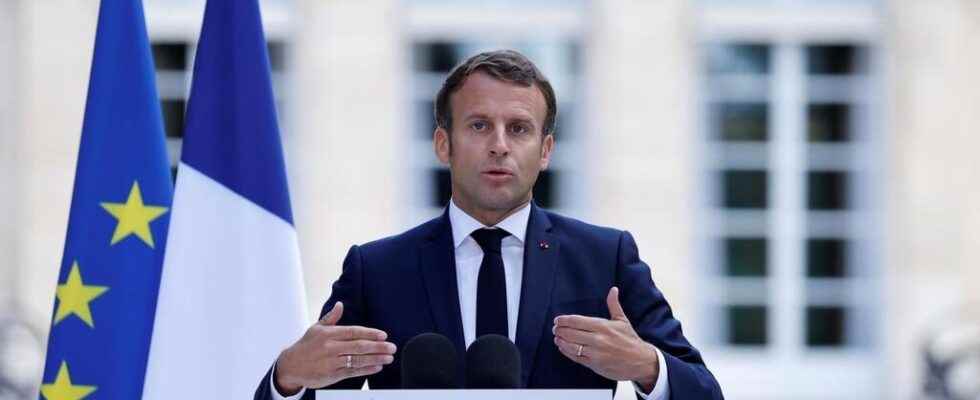This is one of the highlights of the week. A citizens’ convention will be launched in October on the end of life with the possibility of a new law in 2023. Emmanuel Macron is reopening this sensitive debate in France. Why is the Head of State taking the risk of tackling this project now?
Emmanuel Macron will no longer be president in 2027, it is his last five-year term at the head of the country, and he is certainly already thinking about the trace, the memory he will leave after his departure. And societal reforms are often those that remain in the memory, those that mark a term of office. We remember François Hollande with marriage for all. François Mitterrand and the abolition of the death penalty. Valéry Giscard d’Estaing – and especially Simone Veil – for the decriminalization of abortion. Each time, the power takes a large part of public opinion the wrong way, despite the demonstrations, the very hard political opposition. And each time, a few years later, these big changes have become the norm. And they remain in French political history. This is perhaps also what motivates Emmanuel Macron today.
Divided political parties
What will the political parties do if a text arrives at the National Assembly? The question of the end of life is intimate, everyone has a very personal opinion on the subject, family stories in mind. There is therefore no single, official position in the political groups. Example at Les Républicains: the contenders for the presidency of the party Bruno Retailleau and Aurélien Pradié do not want to extend the possibilities of end of life while several LR deputies have pushed for a new text in the Assembly. At the Modem where everyone will be left to decide according to their convictions. At the National Rally, it is also complicated. When the mayor of Perpignan and candidate for the head of the RN Louis Aliot wants to stick to the Leonetti law for “ do not open the door to euthanasia “, Marine Le Pen, she proposes a referendum on the subject. At Horizons, the party of Edouard Philippe, an executive also wants a vote from the French on the subject: “ it would be a noble referendum “, explains this deputy, “ because it would not be a vote for or against Macron “. If parliamentarians were to decide on an extension of the current law, there would be no voting instructions, given the internal differences between all the parties. This could lead to explosive debates in the Assembly.
Depoliticize the subject?
Politically, the subject is risky. This is why Emmanuel Macron turns to the citizens. It’s a way of trying to depoliticize » the end of life, to take the question out of the political space alone. But that’s the theory. We saw with the citizens’ convention on the climate that the operation turned against the Head of State, accused of climate inaction for not having taken up all the proposals of the citizens. In private, Emmanuel Macron is careful not to give his opinion, but he assures us: “ my conviction is that we must move on the end of life.
